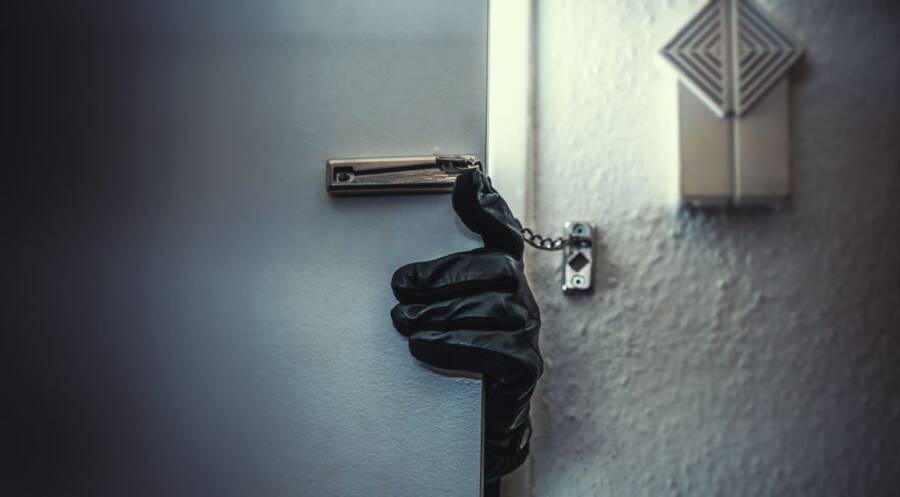Are calla lilies poisonous to dogs? This is an important question that all pet owners should consider before bringing these beautiful flowers into the home. Although calla lilies are stunning, they can be dangerous to our beloved four-legged friends.
In this article, we’ll explore what makes calla lilies poisonous to dogs, the symptoms to look out for, and the best way to keep your pup safe. Now that you know this, you can enjoy these flowers without worrying about your pet’s health. So let’s get started!
Here’s: Are Calla Lilies Poisonous to Dogs?
Calla lilies are highly toxic to dogs. They contain insoluble calcium oxalate crystals that obstruct the dog’s gastrointestinal tract, which can potentially be fatal for dogs. Symptoms include burning and irritation in the mouth, as well as pawing at the face to try to stop the pain.

Symptoms Of Poisoning In Dogs From Eating Calla Lilies
If you suspect that your dog has eaten a calla lily, it’s important to be on the lookout for the following symptoms:
Vomiting
Diarrhea
Loss of appetite
Lethargy
Excessive drooling
In rare cases, more severe symptoms such as difficulty breathing and tremors may occur.
If your dog exhibits any of these symptoms after consuming a calla lily, it’s important to seek veterinary care as soon as possible. Trust me, it’s better to be safe than sorry!
How to Treat Dogs Who Have Eaten Calla Lilies?
If you think your dog has eaten a calla lily, you need to act right away.
The best first step is to talk to your vet about possible symptoms and the best way to treat the problem. Depending on the intensity of the level of toxicity, your vet may advise you to make them vomit using hydrogen peroxide, or they might suggest you bring them in for treatment.
If you opt for vomiting, measure out 3-5 milliliters of hydrogen peroxide per pound of their body weight and mix it with a teaspoon of salt. Offer this remedy to the pup and let them drink all they can. If they fail to vomit within 15 minutes, get in touch with your vet for further instructions.
Clinical signs of calla lily poisoning in dogs can range from mild to severe. So, your vet may administer other treatments if deemed necessary, like fluid solutions, antibiotics, medications, and such that reduce inflammation and pain. Activated charcoal can be given too, which helps absorb toxins from their system naturally.
How to Prevent Calla Lily Poisoning in Dogs?
Keeping your pup safe from calla lily poisoning is important and can be achieved with a few simple precautions.
First, it’s best to keep the flowers out of reach. If you have them in your home, put them on a high shelf or inside a locked cabinet so that your pup can’t get to them.
Secondly, be aware of any patches of calla lilies growing in your yard or neighborhood, and if possible, take steps to avoid them. Take your dog for walks. Make sure they are on a leash at all times and avoid any areas where calla lilies may be growing.
Finally, if you suspect that any pets in your home, or even those in the neighborhood, have ingested calla lilies, then it’s best to take them to the vet as soon as possible.
By following these steps, you can help ensure the safety of your pup and reduce the chance of accidentally poisoning them with calla lilies.
Are All Species of Calla Lilies Poisonous?
The answer to this question is a definitive yes; all species of calla lilies are toxic to dogs. This can be a frightening thought, particularly if you have a pup that loves to explore its environment.
The most commonly available type is Zantedeschia aethiopica, and unfortunately, it’s the most toxic one. Other varieties, such as Z. rehmannii, also cause similar problems in dogs.
The toxic compounds present in these plants are saponins and calcium oxalates. Sadly, they’re found in all parts of the calla lily, so even if your pup doesn’t eat it, they could still suffer from contact with them.
Ingestion or skin contact with these toxins can result in irritation, difficulty swallowing, vomiting, diarrhea, and other gastrointestinal issues. In serious cases, kidney failure or death can occur too.
In conclusion, all species of calla lilies are toxic to dogs, and steps should be taken to protect your pet from coming into contact with them! If ingested or touched. However, prompt veterinary help should be sought out immediately.
FAQs
Are Calla Lily Leaves Poisonous to Dogs?
Many dog owners may worry if the leaves of calla lilies are poisonous to their pups. The good news is that calla lilies are not toxic to dogs, but there is a chance that your dog may experience some mild digestive upset from ingesting large amounts of their leaves nonetheless.
Vomiting or diarrhea are all possible symptoms if your pup happens to eat a lot of the calla lily leaves, so it’s best to watch your pet closely and provide them with plenty of water just in case.
Are Calla Lilies Toxic to Dogs’ Lungs?
When it comes to the question of whether calla lilies are poisonous to a dog’s lungs, thankfully, the answer is no. Even if ingested or inhaled, being close to calla lilies most likely won’t have any other negative effects on your pup; they are not poisonous when touched either.
Can Calla Lilies Be Toxic to Dogs’ Eyes?
It’s not likely that calla lilies would ever be poisonous to a dog’s eyes, even if they are directly exposed to the flowers or pollen. So while exposure to calla lilies won’t cause severe harm, your pooch may still experience discomfort or irritation if their eyes get too close to them.
Final Thoughts
When it comes to whether or not calla lilies are poisonous to dogs, the answer is yes. All types of calla lilies have chemicals in them that can be harmful if too much is eaten. It’s important to keep dogs away from calla lilies and to always supervise them if they are around them.
It’s also important to note that other plants and flowers can be toxic to dogs. If you have any questions or concerns about the safety of a specific plant, do your research and contact your veterinarian or the ASPCA Animal Poison Control Center for more information.
Finally, if you think your dog has ingested any part of a calla lily, make sure to seek immediate veterinary care. The sooner you act, the better the chance of a positive outcome.
While calla lilies are beautiful and vibrant, they can be dangerous for our furry friends. It’s best to err on the side of caution and keep them away from your pup.









